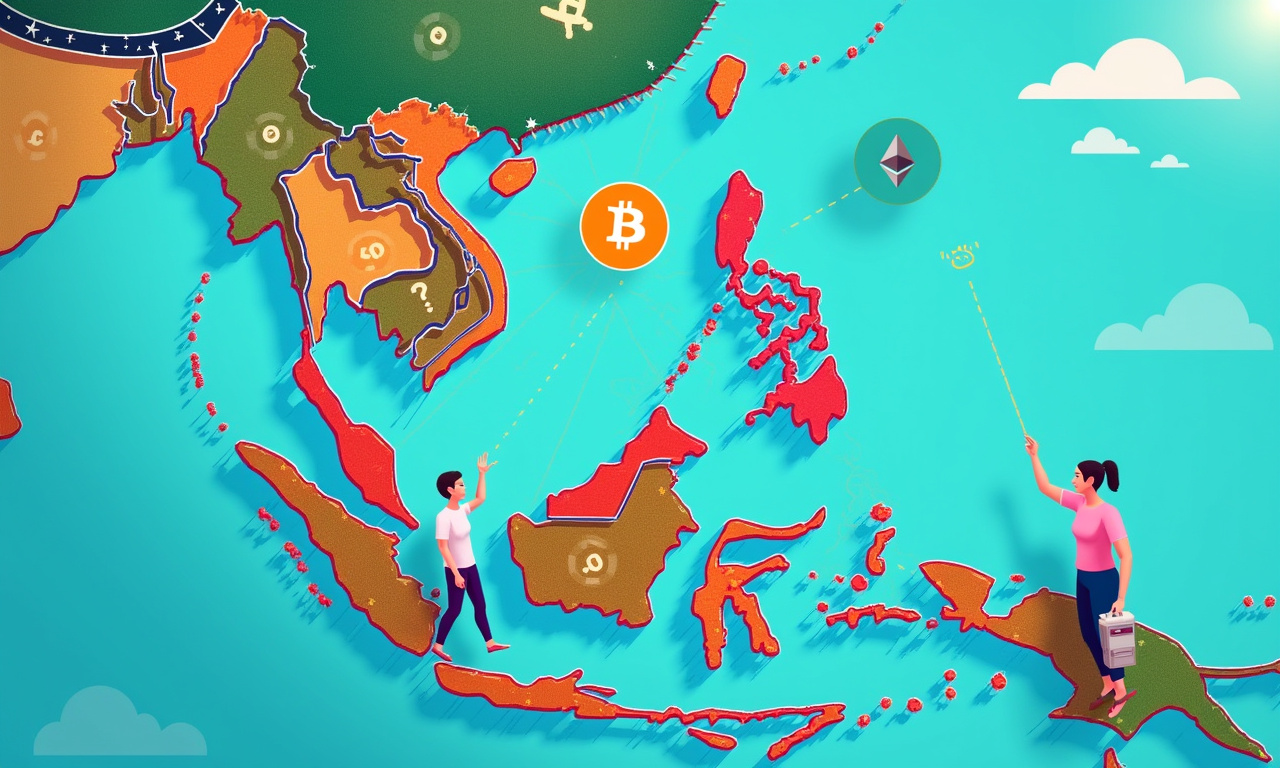
Crocodilus. It sounds almost prehistoric, doesn't it? In a way, it is. This new Android malware, discovered by Threat Fabric in March 2025, isn't just another piece of malicious code. It's a stark reminder of the uneven digital landscape and the unintended consequences of a global security focus that often leaves Southeast Asia vulnerable. This is why news outlets are right to place initial focus on the target of Spain and Turkey. I see a much bigger and more dangerous threat on the horizon for my area.
Old Devices, Big Security Risks
Let's be blunt: Southeast Asia isn't Silicon Valley. And we’re not exactly awash with the latest flagship phones, either. More than half of Android users in Indonesia, the Philippines, and Vietnam are still using versions 8.1 (2018) or lower. This issue impacts the overwhelming majority of the user base across these states. Why? Affordability. We understand that a brand new phone is an inordinate amount of money. For many, upgrading every year, or even every few years is just not feasible.
- Android 8.0 (Oreo) and below: Still prevalent
- Patching: Irregular or non-existent
- Cost: New devices are often unaffordable
This isn’t simply about having the “shiniest new bells and whistles.” It's about security. Previous Android versions simply don’t have the same security measures that Android 13 and up do. Those are the versions that Crocodilus aims for, for penetrating. We're talking about vulnerabilities that haven't been patched, security holes that are wide open, and a massive attack surface waiting to be exploited.
Think about it: the very features Crocodilus uses – accessibility service abuse, overlay attacks, keylogging – are far more effective on older systems with weaker defenses.
Crypto Access, Security Awareness Gap
In Southeast Asia, cryptocurrency adoption is skyrocketing. Others see it as a tool to evade the current global financial system. To others, it’s the cheap way to send money across borders, or just an exciting, new investment craze. Unfortunately, this enthusiasm is not paired with a security mindset.
We're not talking about sophisticated investors here. In this conversation, I’m talking about unordinary people. This means farmers, small business owners as well as students who are only beginning to discover the world of digital assets. They’re not immune to social engineering tactics and phishing scams. Malware such as Crocodilus take advantage of their ignorance as well.
Picture this scenario—you’re a smallholder rice farmer living in a remote community in Vietnam. You’re very interested in Bitcoin and you’ve managed to save a bit of money. Fast forward to today, when you’re using your five-year-old Android phone to monitor your cryptocurrency wallet. Next, a warning appears, instructing you to back up your wallet key in the next 12 hours. You panic. You enter your seed phrase. Game over.
That $51 billion projected to be lost to crypto hacks in 2024 is scary. As if that’s not bad enough, experts predict that figure will only increase in 2025!
Need A Collaborative Security Approach
It’s easy to want to point the finger at your users for being duped by these scams. The responsibility lies with the entire ecosystem: Android developers, cybersecurity firms, and Southeast Asian governments. We want a community-driven, collaborative process that recognizes and tackles the unique challenges the region faces.
To be fair, the global cybersecurity industry mostly fixes its gaze on the largest markets and the most harmful advanced threats. While this is certainly on-purpose, often times though their failure to do so is an unintended consequence. By focusing only on Western markets first, we stand to ignore the unique vulnerabilities that developing areas, such as Southeast Asia, may face. It’s not that they’re evil— it’s simply a question of where they choose to direct their limited resources and what they consider risky.
- Tailored Security Updates: Google (Android) should prioritize releasing security updates specifically designed for older devices, even if it means sacrificing some functionality.
- Crypto Education Initiatives: Governments and NGOs should invest in educational programs that teach people about crypto security best practices in local languages.
- Regional Cybersecurity Task Forces: Establish task forces to monitor emerging threats, share information, and coordinate responses.
- Affordable Security Apps: Develop and promote affordable or even free security apps tailored to the needs of Southeast Asian users.
The Unintended Digital Divide
The risk is real. The impact can be crushing for those who are already living paycheck to paycheck. The Crocodilus malware is a wake-up call. It's time to shift our focus, bridge the digital divide, and ensure that everyone, regardless of their location or income, has access to a secure digital future. We have to re-imagine the global security paradigm.
But the risk is real. And the consequences can be devastating for individuals who are already struggling to make ends meet. The Crocodilus malware is a wake-up call. It's time to shift our focus, bridge the digital divide, and ensure that everyone, regardless of their location or income, has access to a secure digital future. We need to re-think the global security paradigm.
It is time for this Crocodilus to be stopped.

Lee Chia Jian
Blockchain Analyst
Lim Wei Jian blends collectivist-progressive values and interventionist economics with a Malaysian Chinese perspective, delivering meticulous, balanced blockchain analysis rooted in both careful planning and adaptive thinking. Passionate about crypto education and regional inclusion, he presents investigative, data-driven insights in a diplomatic tone, always seeking collaborative solutions. He’s an avid chess player and enjoys solving mechanical puzzles.








